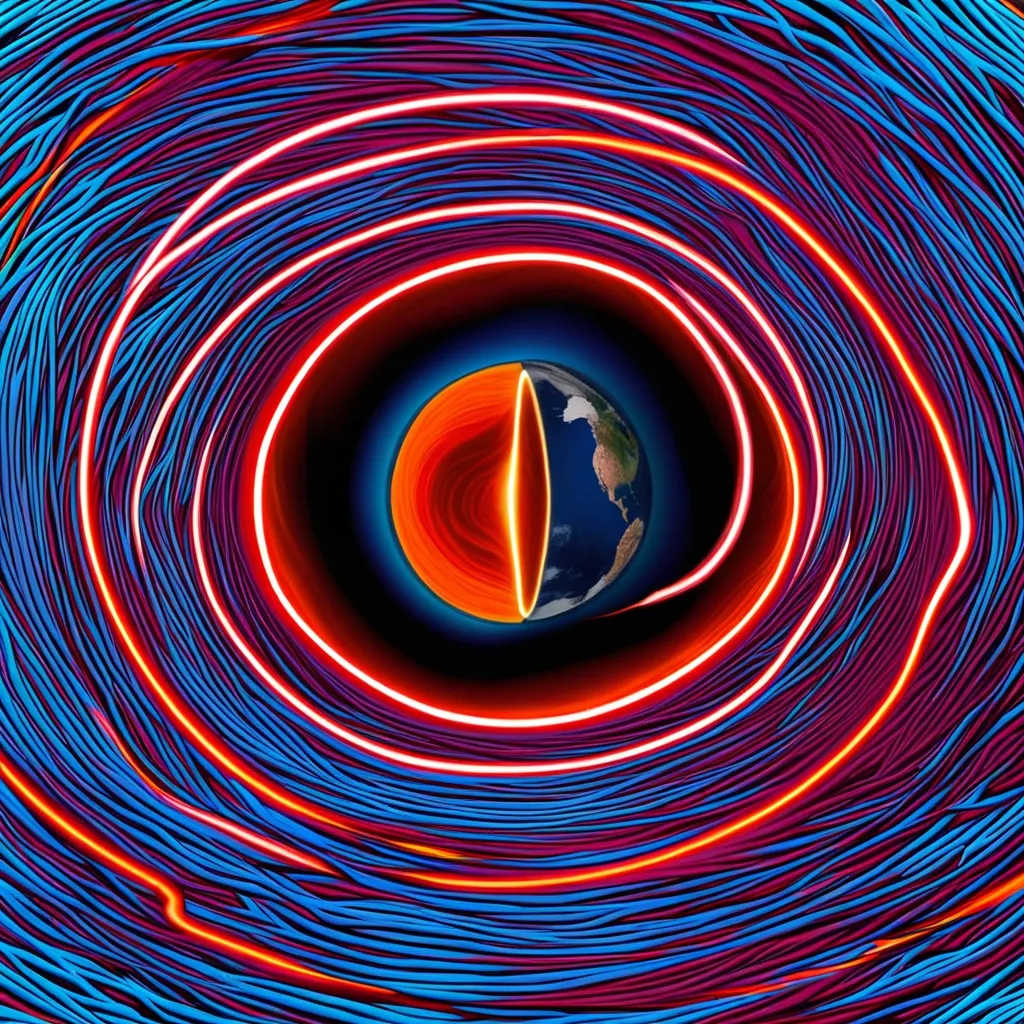Earth’s Magnetic Field Flip: What’s the Big Deal?
So, you’ve probably heard some buzz about the Earth’s magnetic field flipping. Sounds pretty wild, right? Like something out of a sci-fi movie. But here’s the thing - it’s totally real, and it’s happened before. A lot, actually. Let’s dive into this crazy phenomenon and figure out what it means for us regular folks just trying to live our lives.
First off, what the heck is Earth’s magnetic field anyway? Think of it like a giant invisible bubble around our planet. It’s created by all that molten iron sloshing around in the Earth’s core. This liquid iron moves around due to heat and the Earth’s rotation, creating electric currents. And bam! We’ve got ourselves a magnetic field.
Now, this magnetic field isn’t just for show. It’s like Earth’s personal bodyguard, keeping us safe from nasty space radiation. Without it, we’d be in some serious trouble. Life as we know it probably wouldn’t exist. So yeah, it’s kind of a big deal.
But here’s where things get weird. This magnetic field? It likes to flip. Yep, you heard that right. The north and south poles swap places. It’s like Earth decides to do a headstand every now and then. And it’s happened a lot - about 183 times in the last 83 million years. The last time was around 780,000 years ago. So we’re kind of due for another one.
Now, don’t freak out. This flip doesn’t happen overnight. It’s more like a slow-motion somersault that takes hundreds or even thousands of years. During this time, the magnetic field gets pretty weak and wonky. Instead of having just two poles, we might end up with a bunch of temporary poles all over the place. It’s like Earth can’t make up its mind where north and south should be.
So what does this mean for us? Well, for starters, your compass is going to be super confused. North will be south, south will be north, and your GPS might have a meltdown. It’s not just inconvenient - it’s a real headache for folks who work with satellites and navigation systems. Imagine having to rewrite all that software every time the Earth decides to do a flip!
But it’s not all about messed-up maps. Remember how I said the magnetic field protects us from radiation? Well, when it’s weak, more of that stuff can reach us. This could mean more skin cancer and other health issues. But don’t panic yet - our atmosphere still does a pretty good job at keeping most of the bad stuff out.
On the bright side (literally), a magnetic flip could bring the Northern Lights to places that never get to see them. Imagine seeing those gorgeous light shows in parts of the world where they’re usually just a dream. Pretty cool, right? But remember, it comes with that extra radiation baggage.
Our tech might take a hit too. Satellites could get damaged more easily, which could mess with our communications and GPS. And it’s not just our gadgets - some animals use the magnetic field to navigate. Pigeons and whales might need to figure out new ways to get around. But hey, life finds a way, right?
Now, you might be wondering if this flip is going to cause some major climate change. Good news - there’s no evidence that it has in the past. Earth’s been through a lot of these flips, and life has kept on trucking. The last big reversal, called the Laschamp event, didn’t cause any end-of-the-world scenarios. It might have shaken up some regional weather patterns, but nothing too crazy.
So, should we be freaking out about this? Honestly, not really. Sure, it’ll cause some challenges, especially for our tech and navigation systems. But life on Earth has dealt with this before and come out just fine. It’s more of a “heads up, we might need to adapt” situation than a “run for the hills” scenario.
That being said, it’s good to be prepared. Scientists are keeping a close eye on Earth’s magnetic field, and we’re working on making our tech more robust. It’s a reminder that our planet is always changing, and we need to be ready to roll with the punches.
In the end, Earth’s magnetic field flip is just another one of those weird and wonderful things about our planet. It’s a bit like Earth doing a slow-motion cartwheel through space. Sure, it might make things a bit complicated for a while, but it’s also kind of awesome when you think about it.
So the next time you’re outside at night and see those stars twinkling above, remember that there’s some seriously cool stuff happening right under your feet. Our planet is a dynamic, ever-changing place, full of mysteries and surprises. This magnetic flip is just one more reminder of how amazing and resilient Earth really is.
And who knows? Maybe in a few thousand years, your great-great-great (add a few more greats) grandkids will be using a compass that points south instead of north. Now that’s something to think about!






